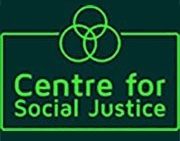About Us
Declarative Statements
- We will always act in the interest of Ghana and not any individual or political party
- Service should be the primary motivation of public servants, and not the acquisition of personal wealth
- Bribery and Corruption should not be tolerated in any form or shape
- Public officials should always act publicly to promote transparency and accountability
- Publicly available asset declaration by public officials is imperative to successfully fighting corruption
- The progress of our democracy hinges on truly independent arms of governments for the purposes of accountability through checks and balances.
- Every Ghanaian should have the right and access to decent education, healthcare and shelter. Money should not be a hindrance to any citizen accessing these rights
- Affirmative action should be employed to correct imbalances in the distribution of resources
- Taxation should be steeply progressive
Core Values
Individuals supportive of the vision of the Centre for Social Justice shall exhibit the highest standards of personal integrity (harmony between thought, word, and deed), shall bring their professional skills to bear on the society’s development, shall have the courage to express alternate views freely, achieve impact through measurable results and distinguish themselves through personal leadership. As a group, we shall be guided by the following core tenets;
- Freedom: Freedom of each person to play a part in the society and its decision making and to be appreciated for it
- Equity: Equitable distribution of cultural and economic resources of society. We note however that achievement must be rewarded and those who command more of the society’s resources should contribute more to society.
- Solidarity: National (Ghana) interest above all else. We are unapologetic patriots
Driving Objectives
- To individually and collectively take responsibility for our own political education on matters of political ideology, policy alternatives, strategy, accountable use of power, transformational leadership and personal integrity.
- To become a distinct leading alternate voice providing left of center policy alternatives and actions with the aim of bridging the gap between the prevailing policy declarations and the realities faced by the population
- To hold all governments and public institutions accountable to the highest standards of good governance practices through a systems view
- To engage in practical acts of leadership that bring hope and improvement to the lives of underserved populations as a means of demonstrating best practices
Civil Education
- Identify speakers and topics
- Employ both in person and virtual events
- Ensure professional and gender diversity among audience where possible
- Share recommended reading material in advance
- Have monthly meetings
- Encourage open debate and diversity of opinion
- Rigorously document each session
- Create e learning group for continuous learning
Policy Alternatives
- Identify Leads in various fields – Economy, Finance, Health, Education, Culture, IT, etc.
- Prepare policy briefs at least once a quarter
- Disseminate policy positions through various media and engage Ghanaian public
- Encourage ongoing individual contribution to public debate leveraging knowledge gained from political education seminars
Accountability
- Match past performance to manifesto pledges and current policy positions and practices in government (wherever applicable)
- Strive for evidence-based commentary and conclusions deploying where necessary, relevant statistical methods
- Applaud good governance practices and measurable results without fear
- In this regard, aim to be solution oriented and empowering rather than being unduly antagonistic underpinned by a belief that nothing is working well
- Be guided by truth, fairness, objectivity and scientific rigor at all times
Community Improvement Projects
- Developmental challenges exist in the following areas and could benefit from improvement efforts;
- Access to quality healthcare
- Lack of a scalable model for cost-effective mass housing
- Low pass rate of certain populations in basic education as part of greater difficulties in quality and access in education
- Sustainability in health insurance financing of health care
- Current economic difficulties
- Strong perception and a high reality of political and public sector corruption
